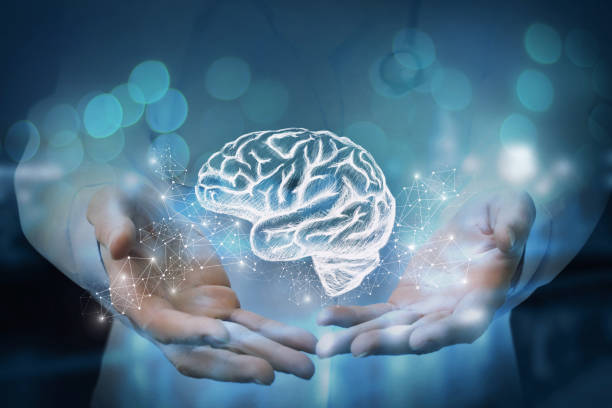Make an Appointment
The human body is a system that functions with the help of various organs. We take care of our body, skin, muscle and other exterior things the question that arises is why should you take care of your brain? We need to understand how important it is to look after the organs that are not seen. It is because every organ needs a different kind of attention that saves the body. The changes that take place in your body and brain are normal as you grow old. Problems that may happen as you age could include Alzheimer’s disease and dementia. The brain is protected by the skull from any external injury but the problems that can happen because of age or psychological factors are inevitable. Therefore it is important to take care.
To keep things in control exercising regularly is recommended. Exercise has many known benefits, and it appears that regular physical activity benefits the brain. Multiple research studies show that physically active people are less likely to experience a decline in their mental function and have a lower risk of developing Alzheimer’s disease. We believe these benefits are a result of increased blood flow to your brain during exercise. It also tends to counter some of the natural reduction in brain connections that occur during ageing, in effect reversing some of the problems. You can walk, swim, play tennis or do any other moderate aerobic activity that increases your heart rate.
It is important to get plenty of sleep
. Sleep plays an important role in your brain health. Some theories sleep helps clear abnormal proteins in your brain and consolidates memories, which boosts your overall memory and brain health. You must try to get seven to eight consecutive hours of sleep per night, not fragmented sleep of two- or three-hour increments.
Consecutive sleep gives your brain the time to consolidate and store your memories effectively. Sleep apnoea is harmful to your brain’s health and may be the reason why you may struggle to get consecutive hours of sleep. People who are anxious, depressed, sleep-deprived, or exhausted tend to score poorly on cognitive function tests. Poor scores don’t necessarily predict an increased risk of cognitive decline in old age, but good mental health and restful sleep are certainly important goals.
Your diet plays a large role in your brain health. Improve your diet good nutrition can help your mind as well as your body. For example, people that eat a Mediterranean style diet that emphasizes fruits, vegetables, fish, nuts, unsaturated oils (olive oil) and plant sources of proteins are less likely to develop cognitive impairment and dementia. Studies show people who closely follow a Mediterranean diet are less likely to have Alzheimer’s disease than people who don’t follow the diet. Omega fatty acids found in extra-virgin olive oil and other healthy fats are vital for your cells to function correctly, appears to decrease your risk of coronary artery disease, and increase mental focus and slow cognitive decline in older adults.
Your brain is similar to a muscle you need to use or you lose it. Stay mentally active. There are many things that you can do to keep your brain in shape, such as doing crossword puzzles or Sudoku, reading, playing cards or putting together a jigsaw puzzle. Consider it cross-training your brain. So incorporate different activities to increase the effectiveness. Finally, don’t watch too much television, as that is a passive activity and does little to stimulate your brain.
Social interaction helps ward off depression and stress, both of which can contribute to memory loss. Remain socially involved. Look for opportunities to connect with loved ones, friends and others, especially if you live alone. There is research that links solitary confinement to brain atrophy, so remaining socially active may have the opposite effect and strengthen the health of your brain.
Every brain changes with age, and mental function changes along with it. Mental decline is common, and it’s one of the most feared consequences of ageing. But cognitive impairment is not inevitable. Here are 12 ways you can help maintain brain function. Improve your blood pressure. High blood pressure in midlife increases the risk of cognitive decline in old age. Use lifestyle modification to keep your pressure as low as possible. Stay lean, exercise regularly, limit your alcohol to two drinks a day, reduce stress, and eat right.
Improve your blood sugar. Diabetes is an important risk factor for dementia. You can help prevent diabetes by eating right, exercising regularly, and staying lean. But if your blood sugar stays high, you’ll need medication to achieve good control. High levels of cholesterol are associated with an increased risk of dementia.
Some observational studies suggest that low-dose aspirin may reduce the risk of dementia, especially vascular dementia. Avoid tobacco in all its forms. Excessive drinking is a major risk factor for dementia. If you choose to drink, limit yourself to two drinks a day. Moderate to severe head injuries, even without diagnosed concussions, increase the risk of cognitive impairment.


8 Comments
Pingback: What is Neurosurgery? | Sujata Birla Hospital
Pingback: What is Aphasia? | Sujata Birla Hospital
Pingback: What is Aphasia? – Sujata Birla Hospital
Pingback: What is Sleep Apnea? | Sujata Birla Hospital
Pingback: Adolescent Health | Sujata Birla Hospital
Pingback: World Brain Tumour Day | Sujata Birla Hospital
Pingback: World Brain Tumour Day – Sujata Birla Hospital
Pingback: What is Vertigo? | Sujata Birla Hospital